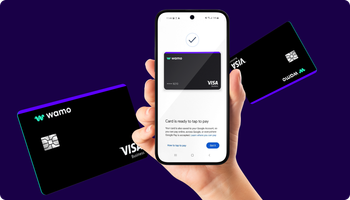Navigating the world of business as a sole trader is an exciting adventure. It offers the freedom to be your own boss, make your own decisions, and reap the rewards of your hard work.
However, it does come with its own set of challenges. One of the most important decisions you'll make is how to handle your finances. This is where having a business account for sole traders can make a huge difference.
A business account helps you keep your personal and business finances separate, which is a huge relief come tax time. Plus, having a dedicated business account makes you look more professional and trustworthy to your clients and suppliers.
But not all business accounts are the same. Some have hidden fees or restrictions that can be frustrating. Others might not offer the features you need to run your business smoothly.
Let's explore what is business account for sole traders. We'll look at the pros and cons of being a sole trader, compare the tax implications with limited companies, and share practical tips for managing your money.
Whether you're just starting out or looking to improve your financial management, this guide is for you. Let's dive in and discover how a business account can be a game-changer for your sole trader business.
Understanding Sole Tradership:
Before we delve into the specifics of business accounts, let's take a moment to understand what it means to be a sole trader. This understanding is crucial as it directly impacts your financial management and tax strategies.
What is a Sole Trader?
A sole trader is an individual who owns and operates a business on their own. This is the simplest form of business structure, and it's incredibly easy to set up. You don't need to register with Companies House, and you can start trading immediately under your own name or a business name.
However, being a sole trader also means you have unlimited personal liability. In other words, if your business runs into debt, your personal assets could be at risk. This is a significant consideration when deciding whether to operate as a sole trader.
Pros and Cons of Being a Sole Trader
Being a sole trader comes with a unique set of pros and cons.
Pros include:
- Full control over your business
- Easy decision-making process
- Simplicity in setting up and running the business
On the flip side, the cons include:
- Unlimited personal liability
- Potential tax inefficiencies
- The burden of managing all aspects of the business
Understanding these pros and cons can help you make informed decisions about your business structure and financial management.
Sole Trader vs Limited Company Tax Implications
One of the key differences between a sole trader and a limited company lies in the tax implications. As a sole trader, you pay income tax and National Insurance Contributions on your business profits. You're also responsible for filing a self-assessment tax return each year.
In contrast, a limited company pays corporation tax on its profits. Any salary or dividends you draw from the company will also be subject to personal tax. While this can potentially lead to tax savings, it also comes with more administrative and regulatory requirements.
Understanding these tax implications is crucial when choosing a business structure and planning your tax strategies.
The Role of a Business Account in Sole Tradership
A business account plays a pivotal role in the financial management of a sole trader. It's not just about keeping your personal and business finances separate. It's about having a platform to manage your business transactions, and track your income and expenses. Also, prepare for tax time.
Why a Separate Business Account is Crucial
As a sole trader, you might be tempted to use your personal bank account for your business transactions. After all, it's simpler, right? Not quite.
Mixing personal and business finances can lead to a host of problems. It can make your tax preparation a nightmare, blur the line between personal and business expenses, and even put you at risk of an audit.
Having a separate business account helps you maintain clear financial records. It allows you to track your business income and expenses accurately, making tax time less stressful. Plus, it gives your business a more professional image.
Features to Look for in a Business Account
When choosing a business account, it’s essential to find one that meets your needs and helps streamline your financial management. Here are some key features to look for:
- No Monthly Fees: Look for accounts that don’t charge monthly maintenance fees. This can save you money, especially if you’re just starting out.
- Easy Integration with Accounting Software: A good business account should integrate seamlessly with popular accounting software like QuickBooks or Xero. This can simplify your bookkeeping and ensure your records are always up-to-date.
- Online and Mobile Banking: Having access to online and mobile banking makes it easier to manage your finances on the go. Look for apps that are user-friendly and offer features like mobile check deposit and real-time transaction notifications.
- Customer Support: Reliable customer support is crucial. Choose a business account that offers multiple support channels, such as phone, email, and live chat, and has a reputation for resolving issues quickly.
- Low Transaction Fees: Some accounts charge for transactions like deposits, withdrawals, and transfers. Find an account with low or no transaction fees to avoid unexpected costs.
- Business Debit Card: A business debit card allows you to make purchases directly from your business account. Look for cards with perks like cashback rewards or no foreign transaction fees.
- Multiple User Access: If you have employees or partners, you might need to grant them access to the account. Look for accounts that offer multiple user access with customizable permissions.
- Security Features: Ensure the account has robust security measures, such as two-factor authentication, fraud detection, and encryption, to protect your financial information.
Choosing the right business account involves considering your specific needs and finding a bank that offers the features that will help you manage your finances effectively and efficiently.
Why Choose wamo?
wamo is a business account provider for sole traders operating in Europe and the UK. You can open a wamo business account for free within only 10 minutes without even going to a branch. But what’s more in wamo for you?
- Hold Multiple Business and Sub-Accounts: Manage different aspects of your business finances with ease.
- Get Unlimited Virtual and Physical Cards: Issue as many cards as you need for your business operations.
- Easy Local and International Payments: Make GBP payments faster using BACs or Faster Payments and make EUR payments in a tap. Convert to £ or € and make hassle-free international payments at competitive exchange rates.
- Experience the Personal Touch of Human Connection: Access real-person customer support whenever you need it.
- Earn Unlimited 1% Cashback on All Your Card Spending: Benefit from cashback rewards on every purchase.
wamo provides all these features to help you manage your business finances smoothly and grow your business efficiently.
Taxes for Sole Traders: Navigating the Maze
Taxes can be a complex area for sole traders. It's not just about paying income tax on your profits. You also have to navigate the world of self-assessment, National Insurance Contributions (NICs), VAT registration, and more.
Understanding your tax responsibilities as a sole trader can help you avoid penalties and make the most of your allowable deductions. A business account can be a valuable tool in this process, helping you keep track of your income and expenses and simplify your tax preparation.
Self-Assessment and National Insurance Contributions
As a sole trader, you're responsible for completing a self-assessment tax return each year. This involves reporting your business income and expenses to HM Revenue and Customs (HMRC).
In addition to income tax, you'll also need to pay NICs. These contributions help you qualify for certain benefits, such as the State Pension. The amount you pay depends on your profits.
A business account can make the self-assessment process easier. It provides a clear record of your business transactions, helping you accurately report your income and expenses.
Tax Deductions and Allowable Expenses
One of the benefits of being a sole trader is the ability to deduct allowable expenses from your taxable income. This can include costs like office rent, business travel, and equipment purchases.
However, it's important to understand the difference between allowable and disallowable expenses. Not all business expenses can be deducted from your taxable income. For instance, entertainment costs are generally not allowable.
Again, a business account can be invaluable here. It allows you to easily track your expenses, making it easier to identify your allowable deductions at tax time.
VAT Registration: When and Why?
VAT registration is another consideration for sole traders. If your VAT taxable turnover exceeds the current threshold, you must register for VAT.
However, even if you're below the threshold, you might choose to register voluntarily. This can allow you to reclaim VAT on your business purchases.
Remember, VAT registration comes with additional responsibilities, like submitting VAT Returns. A business account can help you manage these responsibilities, providing a clear record of your VAT transactions.
Choosing the Right Free Business Account for Sole Traders
Choosing the right business account is a crucial decision for any sole trader. It's not just about finding a free account. You also need to consider features like integration with accounting software, scalability, and security.
A good business account should make your life easier, not more complicated. It should help you manage your finances effectively, save time on administrative tasks, and grow with your business.
Integration with Accounting Software
One key feature to look for in a business account is integration with accounting software. This can help you improve your financial management. You can track your income and expenses, create invoices, and file your taxes more easily.
Some business accounts offer direct integration with popular accounting software like Xero. This can save you time on data entry and reduce the risk of errors. You can integrate your wamo account with Xero easily.
Scalability: Growing with Your Business
Another important consideration is scalability. As your business grows, your banking needs may change. You might need a higher transaction limit, additional services, or more advanced features.
Look for a business account that can grow with your business. This might include options to upgrade to a paid account, add additional services, or access higher transaction limits as your business expands.
Security and Fraud Protection
Finally, don't overlook the importance of security. Your business account contains sensitive financial information, and you need to be confident that this information is protected.
Look for a business account with robust security features. This might include two-factor authentication, fraud detection systems, and secure encryption. It's also worth checking whether the bank offers any guarantees or protections in the event of unauthorized transactions.
Additional Services and Perks of Business Accounts
When choosing a business account, don't just focus on the basics. Many providers offer additional services and perks that can add value to your business. These might include networking opportunities, educational resources, or business development tools.
These extras can make a big difference to your business. They can help you build connections, learn new skills, and grow your business faster.
Campaign and Coupons to Increase Your Earnings
While choosing a business account, it's important to check what would be profitable for you. Some companies have amazing campaigns to support your growth and earnings. For example, at wamo, we have Referral and Cashback Campaigns designed to benefit you:
Referral: Recommend wamo and earn €100. When you recommend wamo, both you and the referred business earn €100. Find out more about wamo Referral
Cashback: Earn up to 1% cashback on all your spending. Learn more about wamo Cashback
Choosing an account with these types of incentives can provide additional value and support your business growth.
Business Development Resources: Why They Matter
When choosing a business account, it's essential to consider the additional resources and tools that providers offer. These resources can be pivotal for your business growth, helping you stay competitive, make informed decisions, and efficiently manage your operations. Resources, discounts, and business development tools can provide significant value, especially for small businesses and sole traders looking to expand their capabilities and market reach.
wamo focuses on practical tools and perks to support your business:
Free Downloadable Templates: Utilize our free downloadable templates designed to aid your business growth and streamline your operations. These templates can help you manage various aspects of your business more efficiently. Download Templates
wamo-Connect: Access discounts and perks from essential tools and services that your business might need. These benefits can help you save money and leverage high-quality services to enhance your business operations. Explore wamo-Connect

Why Choose wamo's Free Business Account for Sole Traders?
Managing your finances as a sole trader and selecting the right business account can significantly impact your success. Wamo's free business account for sole traders stands out with its comprehensive features and benefits tailored to meet your needs.
No Monthly Fees: wamo's free plan is great for beginners or those wanting to save money on financial fees.If you want additional features, you can select the Smart or Pro plans. These plans have a monthly fee but provide more capabilities.
Integration with Accounting Software: If you use Xero, wamo's smart and pro plans are compatible with this accounting software. Also if you are planning to start using accounting software, you can enjoy special perks for wamo users. They help simplify bookkeeping and financial management tasks. Learn more about Xero integration here.
All-Online Financial Service: wamo is an online financial service that lets you easily manage all your financial needs through the app. This means you can handle your finances anytime, anywhere.
24/7 Human Customer Support: Wamo prides itself on delivering round-the-clock customer support from real people. Whether you reach out via phone, email, or live chat, you’ll always connect with a human, ensuring personalized and effective assistance.
Affordable Transaction Fees: With wamo, transaction fees are straightforward and affordable at €0.99 per transaction, helping you keep costs predictable.
Visa Debit Business Cards: wamo offers Visa debit business cards, including one free virtual card with the freemium plan. You can order Visa debit cards and create unlimited virtual cards with sub-accounts for flexible business spending.
Multiple User Access: Need to grant access to employees or partners? With wamo's multiple user access feature, you can customize permissions for security and control.
Cashback and Discounts: Enjoy 0.5% cashback on all spending with the smart and pro plans. Additionally, switching to an annual plan provides a 20% discount, offering substantial savings for your business.
Referral Campaign: wamo’s referral campaign rewards both you and the referred business with €100 each, making it a win-win for expanding your business network.
wamo Connect: If you are a wamo customer, you can become a member of wamo Connect. Wamo Connect is a community of partnerships that offer useful tools and services for small business owners. Enjoy exclusive discounts and offers that can help your business thrive.
Choosing wamo's free business account for sole traders gives you access to helpful features. These features make managing your finances easier and can also help your business grow. wamo helps beginners and experienced users improve their setup with tools and support for success.
Frequently Asked Questions
We understand that you may have some questions about business accounts for sole traders. Here, we answer some of the most common queries.
Can I Use My Personal Account for Business Transactions?
Technically, as a sole trader, you can use your personal account for business transactions. However, it's not recommended. Mixing personal and business finances can lead to confusion and make tax reporting more difficult. A separate business account helps you keep track of your business income and expenses more effectively.
What Happens to My Business Account if I Become a Limited Company?
If you decide to become a limited company, you'll need to open a new business account in the company's name. This is because a limited company is a separate legal entity from you. The money in the company's account belongs to the company, not to you personally.
How Do I Choose the Best Free Business Account?
Choosing the best free business account depends on your specific needs. Consider factors like the account's features, any potential fees, integration with accounting software, and the level of customer support. It's also important to read the terms and conditions carefully.






